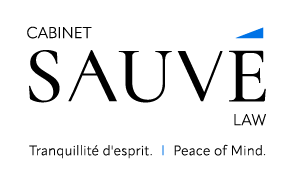Beyond the Handshake: Why Your Ontario Corporation Needs a Shareholder Agreement
Starting a business with partners is an exhilarating journey. It’s a time of shared vision, boundless optimism, and mutual trust. In the early days, when everyone is aligned and working towards a common goal, it’s easy to believe that a simple handshake and a shared understanding are all you need. You're not just partners; you're friends, perhaps even family. What could possibly go wrong?
But as your business grows and evolves, so do the circumstances of its owners. Life is unpredictable. Disagreements can arise, personal situations can change, and unexpected opportunities can present themselves. Without a clear, legally binding "rulebook" in place, these events can escalate into business-ending disputes that can destroy not only the company you’ve built but also the relationships it was built upon.
This is where a Shareholder Agreement becomes one of the most critical documents your corporation will ever have. At Cabinet Sauvé Law, we see it as the ultimate tool for providing long-term Peace of Mind to business owners. It’s your partnership's roadmap for navigating the unexpected, ensuring fairness, stability, and a clear path forward, no matter what challenges arise.
What Exactly is a Shareholder Agreement?
Simply put, a shareholder agreement is a private contract signed by all the shareholders of a corporation. While your Articles of Incorporation are the public-facing documents that create your company, the Shareholder Agreement is the confidential, internal guide that governs the relationship between the shareholders.
It outlines their rights, responsibilities, and obligations, and most importantly, it pre-emptively answers the tough "what if" questions. Think of it as a "business pre-nup"—a document created when everyone is on good terms to ensure things are handled fairly if those terms ever change.
The "5 D's": Why You Can't Afford to Skip It
The true value of a shareholder agreement becomes clear when you consider the common scenarios that can create chaos in a business. We often refer to these as the "5 D's":
1. Disagreement
Even the closest partners will eventually disagree on a major decision—a large expenditure, a new business direction, or a hiring choice. When you're a 50/50 partnership, this can lead to a complete deadlock, paralyzing the company. A shareholder agreement provides mechanisms to resolve these deadlocks, such as mediation or a "shotgun clause."
2. Departure (or Disability)
What happens if a shareholder decides they want to leave the business, or suffers a long-term disability and can no longer contribute? The agreement dictates the terms of their exit. Can they sell their shares to anyone they want? Do the remaining partners have the first right to buy them out? How will those shares be valued? Without an agreement, a departing partner could sell their stake to a competitor or a stranger, leaving you with an unwanted new partner.
3. Death
If a shareholder passes away, what happens to their shares? By default, they become part of their estate and could be passed on to a spouse or child who has no experience or interest in running the company. A shareholder agreement can ensure the surviving partners have the right (or obligation) to purchase the deceased's shares, often funded by a corporate life insurance policy. This provides liquidity for the estate and stability for the business.
4. Divorce
In a divorce proceeding, company shares are often considered matrimonial property and subject to division. This could result in your partner's ex-spouse suddenly becoming a shareholder in your company. A well-drafted agreement can include provisions that trigger a mandatory sale of shares back to the company or the other shareholders if a shareholder's marriage breaks down, preventing outside parties from gaining a foothold in your business.
5. Debt (or Bankruptcy)
If a shareholder faces personal financial ruin and has their assets seized by creditors, their shares could be sold off to the highest bidder. An agreement can protect the company by giving the other shareholders the right of first refusal to purchase the shares before they are offered to third parties.
Key Clauses Your Agreement Must Have
A generic online template won't cut it. Your agreement needs to be tailored to your specific business and partnership. A corporate lawyer at Sauvé Law will help you navigate and customize essential clauses, including:
- Right of First Refusal (ROFR): This common clause prevents a shareholder from selling their shares to an outsider without first offering them to the existing shareholders on the same terms..
- Shotgun Clause (Buy-Sell Provision): This is a powerful tool for breaking a deadlock. In its simplest form, Shareholder A can offer to buy Shareholder B's shares at a specific price. Shareholder B must then either sell their shares at that price or buy Shareholder A's shares at the very same price. It ensures a fair valuation and a swift resolution.
- Piggy-Back & Drag-Along Rights: These clauses are vital when dealing with an outside offer to buy the company. Drag-along rights allow a majority shareholder to "drag" the minority shareholders into a sale, preventing a small owner from blocking a beneficial deal. Conversely, piggy-back rights allow minority shareholders to "piggy-back" on a deal negotiated by the majority, ensuring they get the same price and terms.
- Share Valuation: The agreement should pre-determine how shares will be valued upon a triggering event (like death or departure). This can be a set formula or a process involving a third-party valuator, preventing heated disputes over what the shares are worth.
- Management and Operations: The agreement can specify how directors are appointed, what decisions require a unanimous vote, and the specific roles and responsibilities of each shareholder-employee.
From a Sign of Distrust to a Foundation of Respect
Many business partners, especially friends, worry that suggesting a shareholder agreement implies a lack of trust. The opposite is true.
Creating a shareholder agreement is a sign of mutual respect and prudence. It acknowledges that you care enough about your relationship and your business to protect them from future uncertainties. It is the act of planning for the worst while you are at your best. By having the difficult conversations now, you create a clear, agreed-upon process that prevents business disagreements from turning into personal, relationship-ending conflicts later.
The CABINET Sauvé Law Approach
Protecting your business from day one is the most fundamental investment you can make. Our corporate law team at Cabinet Sauvé Law has extensive experience drafting custom shareholder agreements for businesses across Ontario, from startups in Ottawa to established companies in Barrie and Angus. We facilitate the crucial conversations, help you anticipate future challenges, and build a legal framework that provides clarity and security for years to come.
Don't leave the future of your business and your partnership to chance. Contact Cabinet Sauvé Law’s corporate law team today to build a strong foundation for your business and secure your Peace of Mind.










